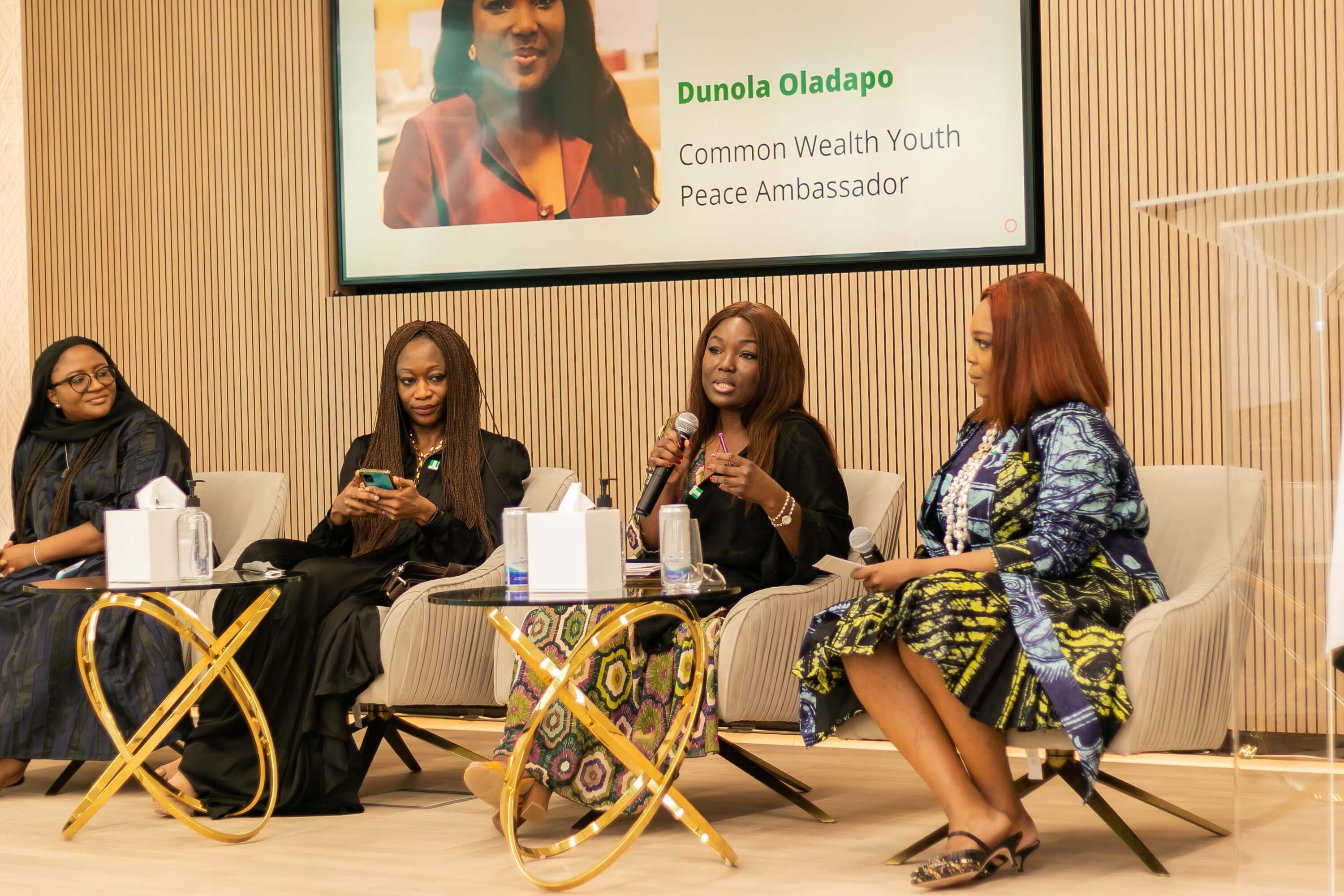As part of Global Goals Week at Expo 2020 Dubai, the Nigeria Pavilion hosted a panel discussion with ‘change-making Nigerian women who are making significant strides to create a positive impact for women across political, economic and social issues in Nigeria and beyond’. I was humbled to contribute to this discussion alongside Jade Adedeji [Co-founder of Stem Mets], Ameena Aliyu-Beighton [Project Development lead at Direct Investment Africa], Hafsat Abiola-Costello [President of Women in Africa Initiative], and our panel moderator - Aramide Abe [Founder of Naija Start-ups].
Here are my 3 biggest takeaways:
1. Technology remains a really powerful conduit for gender equality in the region and beyond
The opportunities of technology as a tool for development are endless. Jade Adedeji spoke about how technology has disrupted the status quo and how it is transferring power from the ‘big boys’ and democratising economic opportunity for some of the most marginalised among us.
However, many young people and women in Nigeria and beyond face significant barriers to accessing the Internet. How can the opportunities of the virtual world be fully maximised when according to the latest UN ITU data 2.9 billion people globally have never been able to connect to the internet and many who still face high data costs and limited access to affordable devices?
2. Talk is cheap: It’s time to invest significant money and resources
According to the Global Entrepreneurship Monitor, Nigeria has the highest number of women entrepreneurs in the world, yet only a fraction of total funding for start-ups goes to women founders. Even for those able to access financing, there are often challenges in accessing loans and in engaging with fund managers. Advocating for a ‘grants THEN loans’ funding approach, Ameena Aliyu-Beighton said “we [women] have to exist first THEN thrive”.
Investment in female entrepreneurs should also be backed up by investment in our domestic infrastructure as the whole ecosystem needs to work to give businesses the best chances of success. On the panel, Hafsat Abiola-Costello poignantly said “you can’t entrepreneur your way out of bad infrastructure”.
3.The need for representation cannot be overstated
Each panellist shared that it was impactful while growing up and even in our present lives to have people to look up to who came from similar backgrounds to us, or looked like us, or dressed like us. Names like Ngozi-Ojoko Iweala [Director-General of the World Trade Organisation], M.K.O Abiola [Nigerian businessman, publisher, and politician], and Amina J Mohammed [Deputy Secretary-General of the United Nations] came up as key inspirations.
Further discussions showed the inspirational power of family. Panellists spoke of the importance of mothers, fathers, aunties, uncles and mentors who believed in us, and made us believe that we could do anything. Everyone can be a role model and advocate for gender equality by encouraging, supporting, and mentoring others regardless of their gender, and by role-modelling healthy leadership for future generations.
On a personal note, participating in the panel was truly energising and inspiring to me. I am grateful to kick-off 2022 by sitting alongside women who are ‘walking the talk’ of taking thoughtful, long-term approaches to creating opportunities for others. I felt the collaborative pirit of ‘Ubuntu’ – ‘I am because you are’. And in a world where women, especially African women, face all kinds of conscious and unconscious biases, this panel manifested the words of the great Maya Angelou – STILL WE RISE.
spirt of ‘Ubuntu’ – ‘I am because you are’. And in a world where women, especially African women, face all kinds of conscious and unconscious bias, this panel manifested the words of the great Maya Angelou – STILL WE RISE.
